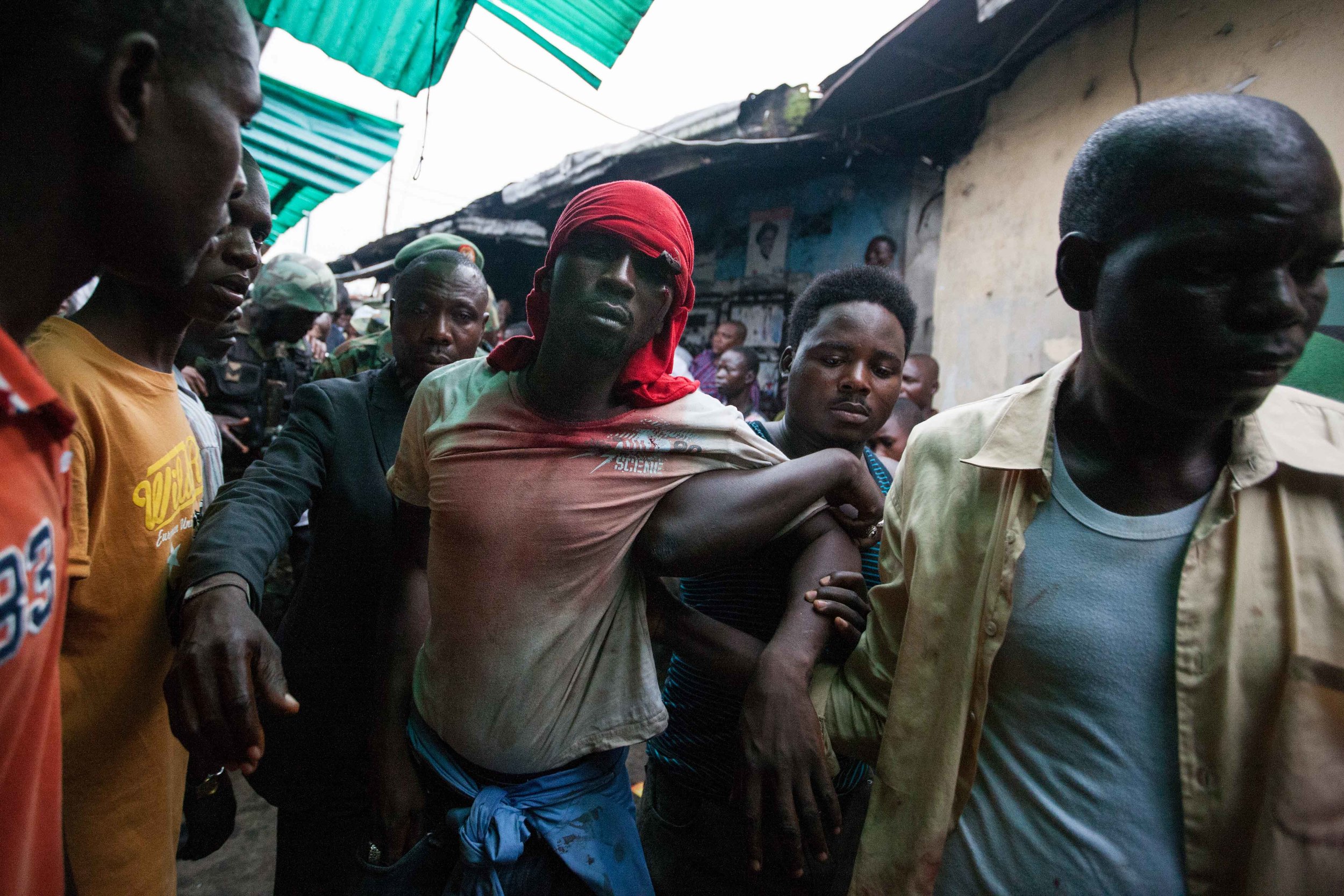For decades, poor residents of the oil-rich Niger Delta have fought the pollution of their lands with little success. Now, a town ravaged by oil spills has changed the game with a historic court victory against Shell.
BODO, RIVERS STATE, NIGERIA - The Yamaha outboard coughs indignantly but refuses to catch.
John Agava mutters under his breath, removes the motor’s cover and flips it over. He siphons a splash of gasoline into it, strips the spark plug from the engine and swishes it around in the gas.
The former fisherman’s hand-carved boat rocks gently, alone on the expanse of slate-grey water of Bodo Creek in Nigeria’s Niger Delta.
Agava replaces the plug and hauls on the engine’s pull cord. It coughs and finally catches. He tosses the gasoline rinse overboard, where it mixes with the rainbow sheen left from a massive oil spill that changed his life — and thousands of others’ — seven years earlier.
READ THE FULL STORY HERE and download the eBook HERE
The waters of Bodo Creek and the surrounding delta were once strewn with fishing boats like Agava’s. But in 2008 a Royal Dutch Shell pipeline burst beneath the surface and gushed thousands of barrels of oil into the surrounding river and fertile mangrove forests. Another ruptured in 2009. Together, the spills pumped an estimated 300,000 barrels of oil into Bodo Creek.
It destroyed the area’s fishery and Bodo’s economy collapsed.
The Niger Delta, the scene of countless similar spills, is now one of the most oil-polluted places on the planet.
A UN Environment Program study in 2011 showed that if the spills stopped and cleanup began immediately, it would still take 30 years and $1 billion just to restore Ogoniland, the sub-region of the delta where Bodo is located.
But 20 years after the first large protests over oil pollution and human rights in the area resulted in the executions of Ken Saro-Wiwa and other Ogoni activists, a court victory has given new hope that redress is possible for decades of environmental degradation and corruption.
In January 2015, after a protracted legal battle, Shell admitted responsibility for the Bodo spills of 2008 and 2009 and settled a landmark lawsuit with the community. The company agreed to pay $110 million in compensation to more than 15,000 residents — John Agava among them — and pledged to clean up Bodo Creek.
The case, thought to be the largest settlement of its kind in Africa, has implications for the oil industry in Africa and beyond.

















